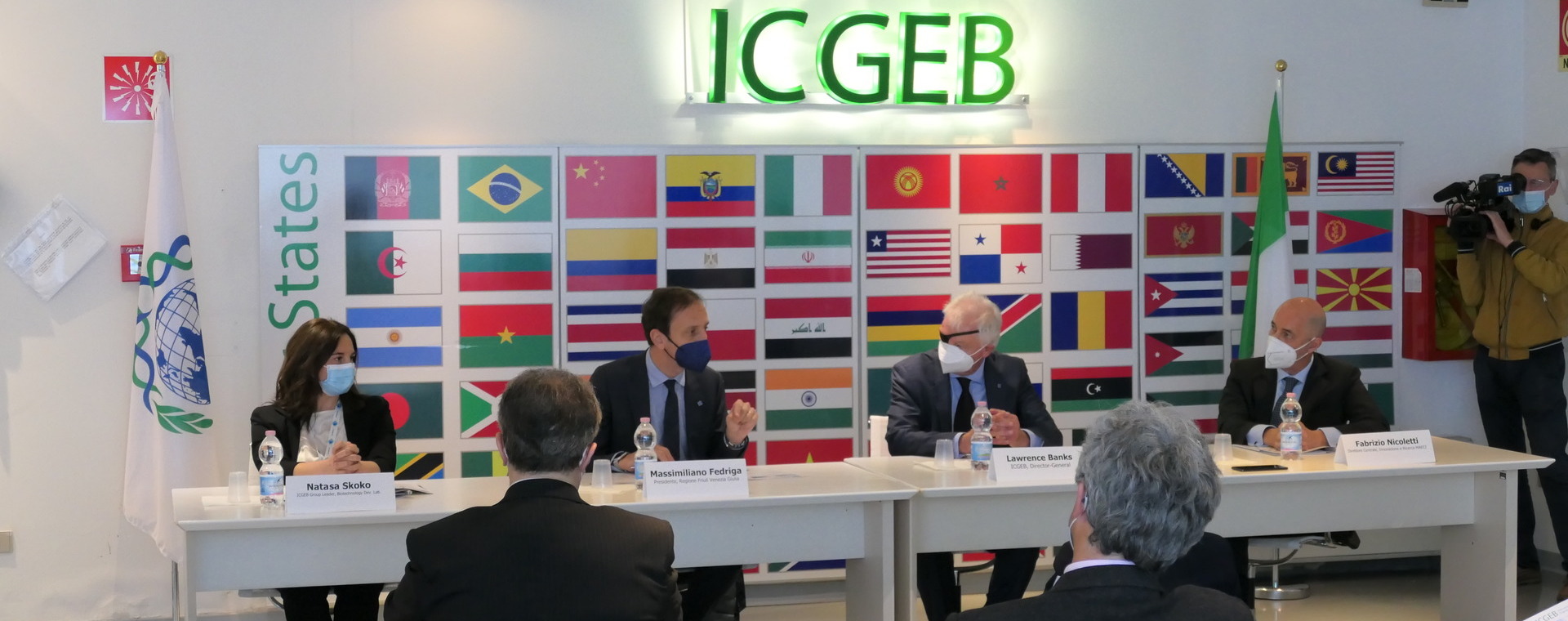27/05/2021
New biosimilar medicinal product development laboratories in the Area Science Park at the International Centre for Genetic Engineering and Biotechnology (ICGEB).
The new laboratories financed with the contribution of the Autonomous Region of Friuli Venezia Giulia were inaugurated at the ICGEB, on the Padriciano Campus in Trieste, on 14 May.
Alta Tecnologia Il Parco
The new laboratories at the Biotechnology Development and Transfer Unit constitute a significant investment made possible with contributions from the Autonomous Region of Friuli Venezia Giulia and provide important economic and technological opportunities for Trieste, the Region and Italy. The new laboratories, which include 15 clean rooms equipped with latest-generation, pharma-compliant instruments and equipment, will be used to research, manufacture and certify biosimilar medicinal products destined to revolutionise the pharmaceutical market over the coming years.
As testimony of the Italian Government’s prominent role in promoting and financing the activities of ICGEB, Minister Fabrizio Nicoletti, Central Director for Innovation and Research, Ministry of Foreign Affairs and International Cooperation—Governor of the ICGEB for Italy—was present at the inauguration, as was Massimiliano Fedriga, President of the Autonomous Region of Friuli Venezia Giulia, marking the Regional Government’s firm commitment to supporting research and innovation, and in promoting international cooperation and the excellence of Trieste as a scientific and technological research hub. Lawrence Banks, General Manager of ICGEB and Natasa Skoko, Group Head of the Unit and Head of the laboratories, were also present.
Financed with a contribution of 3 million euro from the Autonomous Region of Friuli Venezia Giulia, in addition to investments of 1 million euro by ICGEB, the laboratories aim to comply with the strictest safety and quality standards required by the European Medicines Agency’s guidelines. The laboratories are one of a kind in Italy and Europe, since they are not owned by a pharmaceutical company.
The Unit’s activities represent the essence of technology transfer. The Group is engaged in recreating the production methods of biological medicinal products no longer covered by industrial patents. Upon the expiry of an industrial patent, the final product is free, but not all industrial and laboratory procedures required to attain the final product are made available. The Group’s research focuses precisely on reconstructing and validating all the steps necessary to produce biological medicinal products. The objective is to obtain biosimilars, or biological medicinal products that are similar in terms of quality, safety and efficacy to the industrial reference product, at a much lower cost. Thanks to the new laboratories, biosimilar technologies can be developed to produce monoclonal antibodies, as well as essential drugs with anti-inflammatory, antitumour and immunosuppressive action that are already being studied at the ICGEB, and new biological medicinal products resulting from new research.
The Unit also offers training courses at ICGEB directed at staff from Member State pharmaceutical companies on how to reproduce and implement biosimilar medicinal product manufacturing techniques in their own countries. Thanks to the increasingly advanced methodologies and medicinal products that will be developed at the new laboratories, in addition to the facilities and machinery available, extremely high-level training can be offered. In fact, the laboratories embody a state-of-the-art pharmaceutical company. The Unit’s website is: https://icgeb-bdu.org/
Lawrence Banks states: “ICGEB has over 20 years of experience in developing biopharmaceuticals. During this time, technology has been transferred from Trieste to companies all over the world, enabling them to produce therapeutics, such as interferons for the treatment of COVID-19, insulin and monoclonal antibodies for cancer therapies, at significantly lower costs than those of big pharma companies. This ensures that affordable medicines can be obtained by all, irrespective of your socio-economic background.”